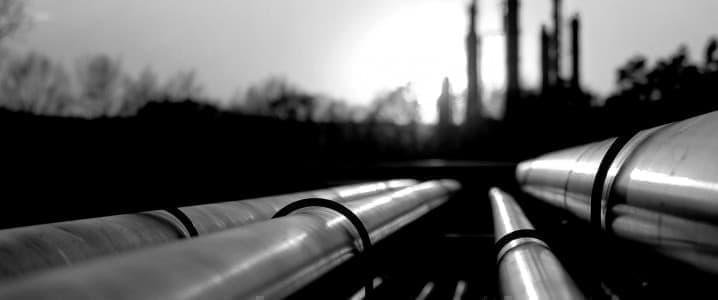The oil and gas industry in the United States scored a big win this week after the EPA narrowed the focus of a rule that up until now, allowed states to refuse to grant pipeline permits—or stall them indefinitely. But under the Trump Administration’s guidance, the EPA is saying no more shenanigans.
The U.S. Environmental Protection Agency (EPA) has issued a final rule narrowing the scope of review for proposed oil and gas pipelines that states should consider under a section of the Clean Water Act for energy infrastructure.
Up until now, states have been using Section 401 of the Clean Water Act to deny permits to oil and gas pipeline projects.
But this final rule makes it clear: under the Clean Water Act Section 401, states can look at the water issues only—not larger issues such as climate change--when asked to review an energy infrastructure project.
States will also be required to complete the review within one year of receiving a certification request—a rule that will surely cramp the styles of the anti-fossil fuel states.
The process for pipeline approvals involves the Federal Energy Regulatory Commission (FERC), which is tasked with interstate pipelines. This is a federal agency that regulates pipeline market entry. The agency awards a certificate of public convenience and necessity authorizing the construction or extension of natural gas facilities, according to an official permitting website for the U.S. Government. FERC requires environmental reviews for these projects. This would be for interstate natural gas pipelines.
But the states get a say so, too, in the form of the Clean Water Act (CWA). Under the powers granted the states by the CWA, the states can use to deny any pipeline project a permit—even one that FERC has approved—if the pipeline, either the construction or operation of it, violates the state’s water quality standards.
In this way, the states are able to override federal pipeline approvals—and potentially derail an multi-state pipeline project.
This isn’t inherently a bad idea, except the scope of the state’s power is supposed to be limited to the effects on water, with “supposed to be” being the operative phrase.
The EPA’s actions this week isn’t so much a change in policy or intent of policy, but a clarification of the spirit of the existing Clean Water Act, which the EPA contends was never designed to blanketly oppose oil pipelines on broad climate change grounds, after the FERC had given a project a green light. This keeps the assessment of the broader environmental impact in the hands of the FERC, not each state.
Related: Is This The Next Major Market For U.S. LNG?
“When states look at issues other than the impact on water quality, they go beyond the scope of the Clean Water Act,” EPA said in a statement.
“EPA is returning the Clean Water Act certification process under Section 401 to its original purpose, which is to review potential impacts that discharges from federally permitted projects may have on water resources, not to indefinitely delay or block critically important infrastructure,” EPA Administrator Andrew Wheeler said.
“Today, we are following through on President Trump’s Executive Order to curb abuses of the Clean Water Act that have held our nation’s energy infrastructure projects hostage, and to put in place clear guidelines that finally give these projects a path forward.”
While the Trump Administration and the oil and gas industry have been pushing for and proposing new energy infrastructure as the nation moves closer toward energy independence, some states such as New York have denied permits for such projects.
Last month, New York’s Department of Environmental Conservation (DEC) denied a water permit for the required Clean Water Act Section 401 Water Quality Certification of Williams’s Northeast Supply Enhancement (NESE) gas pipeline from Pennsylvania to New York City. Before that, the FERC approved certificates for three different interstate projects back in 2018—and New York nixed all three.
Some would argue that New York did so beyond their power, by analyzing the cumulative impact upon all environmental resources, instead of just water.
But the EPA would no longer stand idly by.
Oil industry associations supported EPA’s proposed final rule in comments late last year.
“For those opposed to any oil or natural gas development, America’s energy infrastructure needs are viewed as little more than convenient opportunities to deploy regulatory strategies designed to delay needed projects and sever resources from markets. And increasingly, those regulatory tactics include use of the Section 401 certification process to attempt to delay, constrain, or altogether veto nationally important energy projects,” associations including the American Fuel & Petrochemical Manufacturers (AFPM) and the American Petroleum Institute (API) said.
Where the industry sees the states’ actions as a power grab, others see the EPA’s ruling as the power grab.
Commenting on EPA’s final rule to limit the scope of Section 401 review of the Clean Water Act, NYSDEC Commissioner Basil Seggos said in a statement:
“This action is nothing short of a federal power grab that would strip New York and all states of our authority to protect clean water and public health. New York won't stand for it. We will continue to fight to protect our communities and defend our authority under the law.”
The fight over the CWA scope, or more specifically the fight over how much power the states have to derail pipeline projects, is far from over. Just over a month ago, the EPA and the Department of the Army issued another final rule on a separate aspect of the clean water act that redefined the waters of the United States. The EPA’s move drew criticism from Democratic states and resulted in lawsuit filings.
By Julianne Geiger for Oilprice.com
More Top Reads From Oilprice.com:
- Stocks To Watch As Shale Bounces Back
- The Oil Storage Crisis Is Far From Over
- Deja Vu: OPEC's Recurring Oil Production Dilemma


















